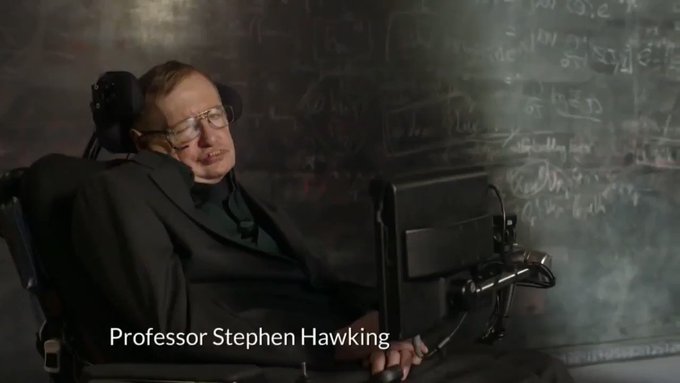
World renowned physicist Stephen Hawking has died at the age of 76.
He died peacefully at his home in Cambridge in the early hours of Wednesday, his family said.
The Briton was known for his work with black holes and relativity, and wrote several popular science books including A Brief History of Time.
At the age of 22 Prof Hawking was given only a few years to live after being diagnosed with a rare form of motor neurone disease.
- Obituary: Stephen Hawking
- Stephen Hawking: A life in pictures
- Stephen Hawking in quotes
- Science community mourns Stephen Hawking
The illness left him in a wheelchair and largely unable to speak except through a voice synthesiser.
In a statement his children, Lucy, Robert and Tim, said: “We are deeply saddened that our beloved father passed away today.
“He was a great scientist and an extraordinary man whose work and legacy will live on for many years.”
They praised his “courage and persistence” and said his “brilliance and humour” inspired people across the world.
“He once said, ‘It would not be much of a universe if it wasn’t home to the people you love.’ We will miss him forever.”
A book of condolence is due to be opened at Conville and Caius College in Cambridge, where Prof Hawking was a fellow.
Prof Hawking was the first to set out a theory of cosmology as a union of relativity and quantum mechanics.
He also discovered that black holes leak energy and fade to nothing – a phenomenon that would later become known as Hawking radiation.
Through his work with mathematician Sir Roger Penrose he demonstrated that Einstein’s General Theory of Relativity implies space and time would have a beginning in the Big Bang and an end in black holes.
The scientist gained popularity outside the academic world and appeared in several TV shows including The Simpsons, Red Dwarf and The Big Bang Theory.
TV shows including The Simpsons, Red Dwarf and The Big Bang Theory.


He was portrayed in both TV and film – recently by Oscar winner Eddie Redmayne in The Theory of Everything, which charted his rise to fame and relationship with his first wife, Jane.
Factfile: Stephen Hawking
- Born 8 January 1942 in Oxford, England
- Earned place at Oxford University to read natural science in 1959, before studying for his PhD at Cambridge
- By 1963, was diagnosed with motor neurone disease and given two years to live
- Outlined his theory that black holes emit “Hawking radiation” in 1974
- In 1979, he became the Lucasian Professor of Mathematics at the Cambridge – a post once held by Sir Isaac Newton
- Published his book A Brief History of Time in 1988, which has sold more than 10 million copies
- In the late 1990s, he was reportedly offered a knighthood, but 10 years later revealed he had turned it down over issues with the government’s funding for science
- His life story was the subject of the 2014 film The Theory of Everything, starring Eddie Redmayne
Tim Berners-Lee, inventor of the web, was one of the first people to pay tribute to Prof Hawking.
“We have lost a colossal mind and a wonderful spirit. Rest in peace, Stephen Hawking,” he said.
The vice chancellor of the University of Cambridge – where Prof Hawking had studied and worked – Professor Stephen Toope, said he was a “unique individual” who would be remembered with “warmth and affection”.
He added: “His exceptional contributions to scientific knowledge and the popularisation of science and mathematics have left an indelible legacy. His character was an inspiration to millions.”







Be the first to comment